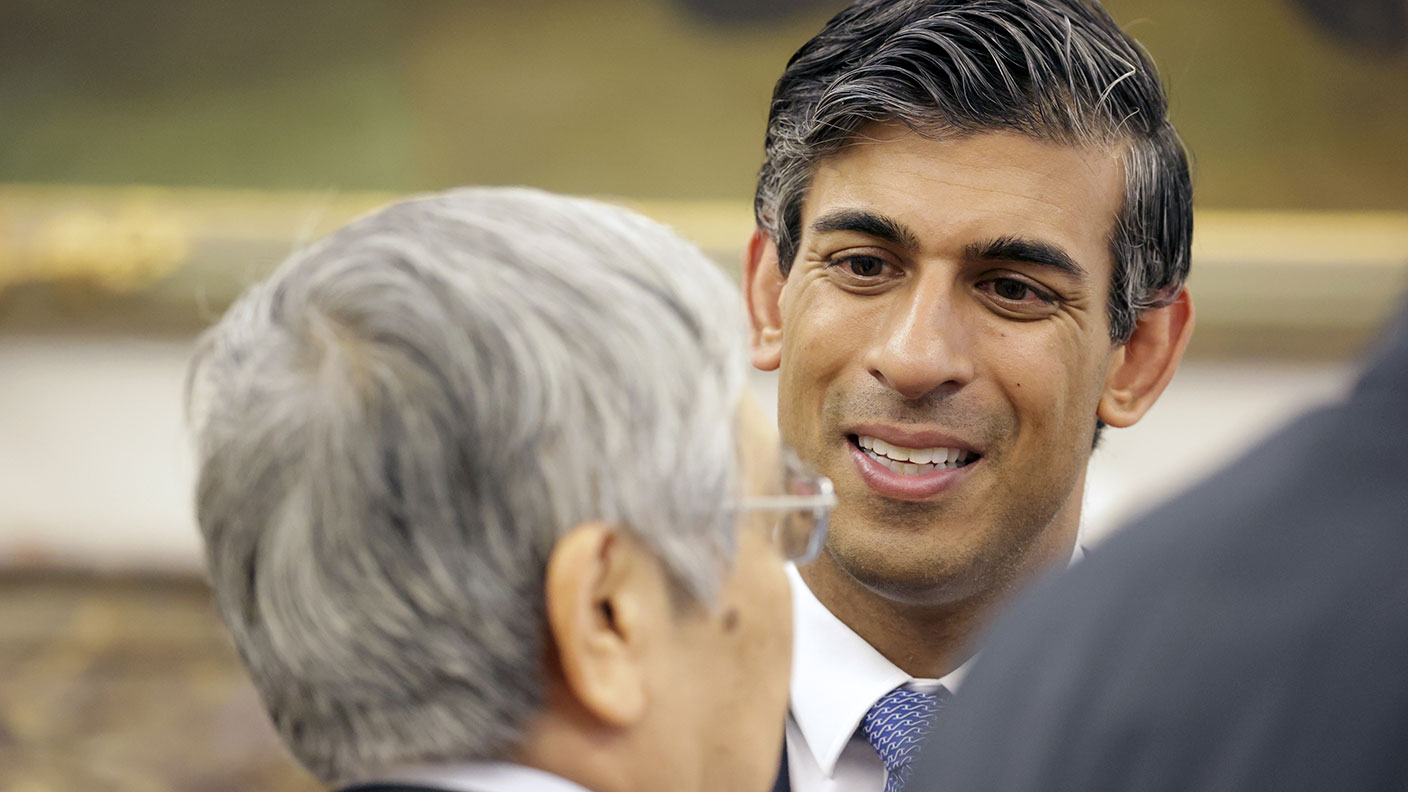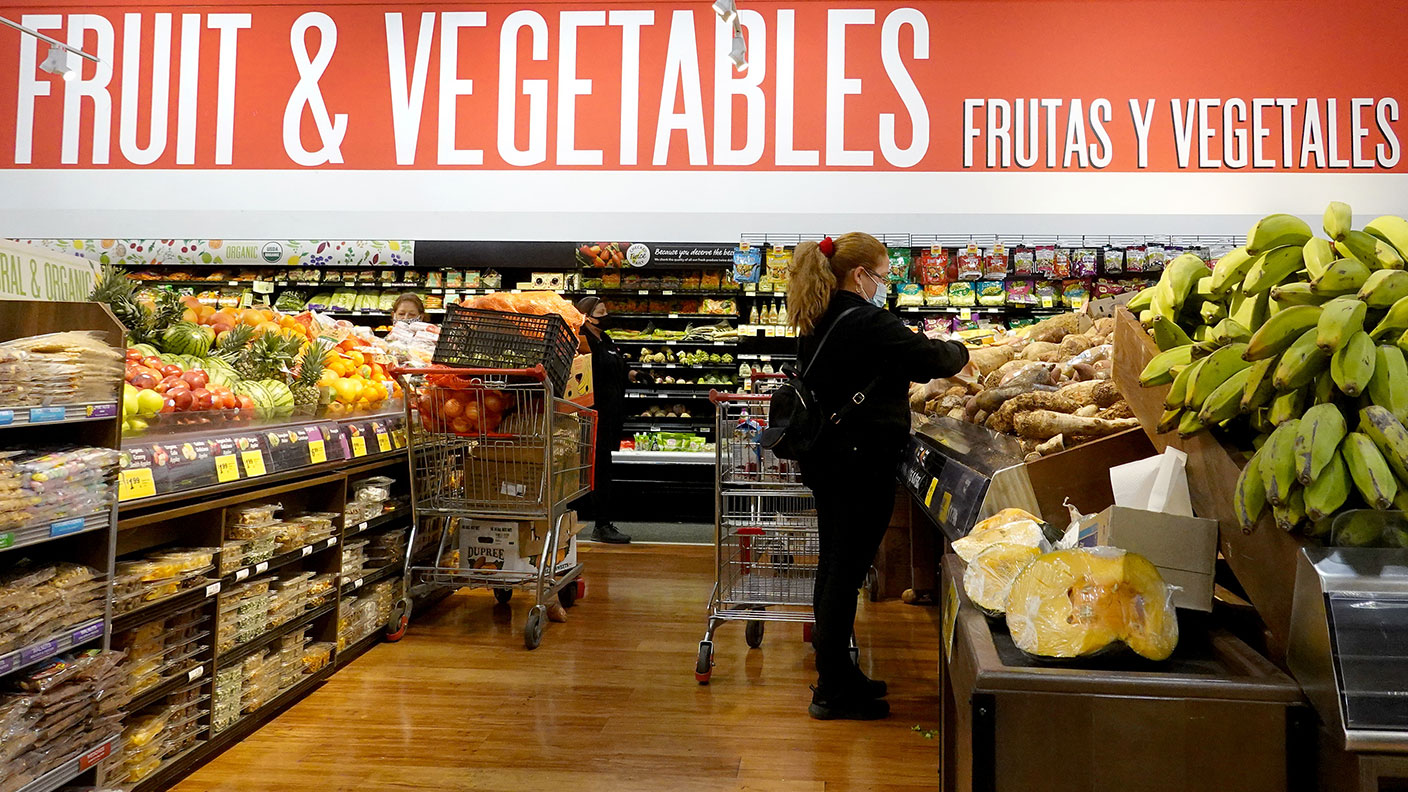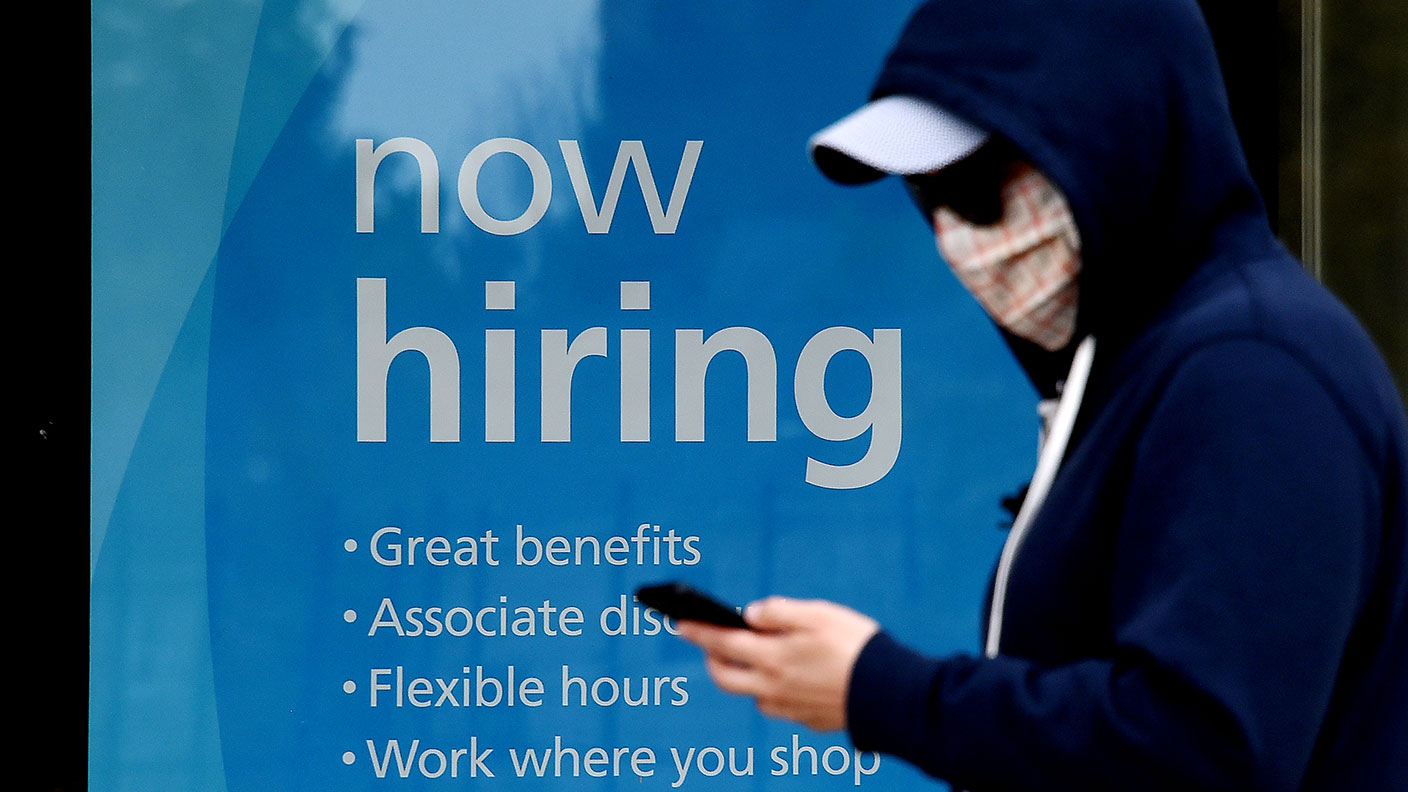What the Brexit election means for your money
This election may be all about Brexit, but it will also define the wider political and economic environment for years to come. John Stepek looks at the issues and explains what it all could mean for you.

Get the latest financial news, insights and expert analysis from our award-winning MoneyWeek team, to help you understand what really matters when it comes to your finances.
You are now subscribed
Your newsletter sign-up was successful
Want to add more newsletters?

Twice daily
MoneyWeek
Get the latest financial news, insights and expert analysis from our award-winning MoneyWeek team, to help you understand what really matters when it comes to your finances.

Four times a week
Look After My Bills
Sign up to our free money-saving newsletter, filled with the latest news and expert advice to help you find the best tips and deals for managing your bills. Start saving today!

I've avoided it all week. But I can deny it no longer.
It's time to turn our attention to the forthcoming election in the UK.
As my colleague Merryn points out in the latest issue of MoneyWeek, whatever the competing parties try to say, this election is all about Brexit.
MoneyWeek
Subscribe to MoneyWeek today and get your first six magazine issues absolutely FREE

Sign up to Money Morning
Don't miss the latest investment and personal finances news, market analysis, plus money-saving tips with our free twice-daily newsletter
Don't miss the latest investment and personal finances news, market analysis, plus money-saving tips with our free twice-daily newsletter
However, as she also points out, while the election itself might mostly be about Brexit, once whoever wins is in power, we have to contend with what they might do.
And that's the scary bit.
You may vote to Leave or Remain, but the winner will stay around beyond Brexit
I haven't written about the forthcoming election yet this week.
That's partly because it's just yet another news event that shouldn't have you panicking about what to do with your portfolio.
Don't get me wrong, it certainly could have a major effect on your money. But we've known for ages what the possible outcomes are, so I'm hoping that you have a handle on what you need to think about.
If not, hopefully this might help a bit.
So what does it all mean? On the Brexit front, weirdly enough, things have actually become clearer, as far as I can see.
If the Conservatives win, we get a Brexit of some sort. If the LibDems win, we get no Brexit at all. If Labour wins, despite all the chopping and changing, it looks as though we probably get a second referendum, with the government campaigning to remain.
So purely on the Brexit front (and I say this loosely), markets should start to calm down a bit. The whole "cliff-edge" scenario (always something of a misnomer) is extremely unlikely now. You get some sort of deal, or you get no Brexit at all.
That said, there are other concerns.
First is that we might not get any clear majority at all. That probably means a lot more squabbling in the Commons, and it probably edges us closer to "second referendum" territory. Again, on the Brexit front, that just extends the pain rather than changing anything, but it introduces a lot more polarisation and a much longer period of governmental paralysis. On the one hand, gridlock isn't always bad, but on the other, I think it would greatly increase the sense of frustration at large.
The second issue is that we might get a Labour government, which despite the delusions of various multinational investment banks, would be a much more radical outcome than a no-deal Brexit.
A confession: I'm not convinced a Labour government would be great for investors
Look, before I get into this, let me be clear about something: I believe in treating my readers like the grown-ups they are. So cards on the table, I have no illusions about my own objectivity and I'm not going to pretend to you otherwise.
I believe in capitalism and free markets they're by no means perfect, but so far they beat the alternatives. So clearly I'm not going to be a fan of a hard-left Labour government. So take my views with as many pinches of salt as you like.
That said, while I freely admit that I may have political biases, I do think I have a decent idea of what markets are comfortable with and what they are not. And one thing that they tend to prize highly is a reliable system of property rights.
When you start playing fast and loose with that trying to pick winners and losers in industry; painting some forms of wealth as "bad" and other forms of wealth as "good"; rhetoric that makes any form of profit sound like it's been stolen rather than earned; looking at the economy as a zero-sum game rather than a system that has the potential to make us all better off then a country becomes a lot less appealing for investors and entrepreneurs.
We've written more about Labour's specific policies here in MoneyWeek magazine. But given that Jeremy Corbyn's campaign has kicked off by painting specific individuals as hate figures to be brought down, I think you need to view any manifesto policies as a mere starting point to a "war on wealth", not as something which will later be diluted (which is what the delusions of the investment banks are based upon).
Beyond all that, what do both of the main parties agree on (I'm going to assume that the LibDems won't get an outright majority I think all but their most diehard fans would probably agree with that)?
Well, not much, except that like every other political party in the world right now, they are happy to splash the cash. If inflation is ever going to return, then the political route is probably the most obvious one in the world right now.
That's why, as always, I'd stick a bit of gold in your portfolio, just in case.
We'll have a lot more on what the election might mean for your money at the MoneyWeek Wealth Summit on 22 November. In many ways, it's fantastic timing you'll be able to get the views of some of the world's top investment, tax and wealth planning experts, at a time when you really, really, really need to be thinking seriously about all of this stuff in a way that you never have before. All told, I'm not sure you can afford to miss it. Book here forewarned is forearmed.
Get the latest financial news, insights and expert analysis from our award-winning MoneyWeek team, to help you understand what really matters when it comes to your finances.

-
 Should you buy an active ETF?
Should you buy an active ETF?ETFs are often mischaracterised as passive products, but they can be a convenient way to add active management to your portfolio
-
 Power up your pension before 5 April – easy ways to save before the tax year end
Power up your pension before 5 April – easy ways to save before the tax year endWith the end of the tax year looming, pension savers currently have a window to review and maximise what’s going into their retirement funds – we look at how
-
 Is the US in recession and does it matter?
Is the US in recession and does it matter?Analysis There's a heated debate over whether the US is in recession or not. But why does it matter? John Stepek explains
-
 Has the chancellor done enough to save the UK from recession?
Has the chancellor done enough to save the UK from recession?Analysis UK Chancellor Rishi Sunak announced a new package last week to ease the cost of living crisis. John Stepek explains whether the risk of a UK recession still remains.
-
 Is the UK too open to overseas takeovers?
Is the UK too open to overseas takeovers?Analysis Data shows that the UK is more open to overseas takeovers than other major markets. John Stepek asks: should investors care?
-
 How to manage your money as inflation just keeps rising
How to manage your money as inflation just keeps risingAnalysis Uk inflation is at a 30-year high – and it won't be falling any time soon. So what can you do? John Stepek explains how to manage your money to combat rising prices.
-
 Inflation is going to stay even higher for even longer
Inflation is going to stay even higher for even longerAnalysis Commodity prices – everything from energy to food – are going through the roof. And that’s not likely to end any time soon, says John Stepek. Here's what that means for how you invest.
-
 Inflation is incredibly inconvenient, as we’re all about to learn
Inflation is incredibly inconvenient, as we’re all about to learnAnalysis Inflation doesn't just eat into your wealth, it eats into your time – and can be devastating for those on the lowest incomes. And it's not going away any time soon, says John Stepek. Here's how to invest.
-
 The cost of living crisis is global – US inflation just hit another 40-year high
The cost of living crisis is global – US inflation just hit another 40-year highAnalysis With US inflation running at 7.5%, it’s clear that the cost of living crisis is not confined to the UK. John Stepek looks at the likely reaction from governments and central banks, and what it means for you.
-
 The strong US jobs report is good news for the economy, but not so much for markets
The strong US jobs report is good news for the economy, but not so much for marketsAnalysis January's US jobs report came in much stronger than anyone was expecting, with 467,000 new jobs added to the economy. But things might not be quite as rosy as they seem, says John Stepek. Here's why.